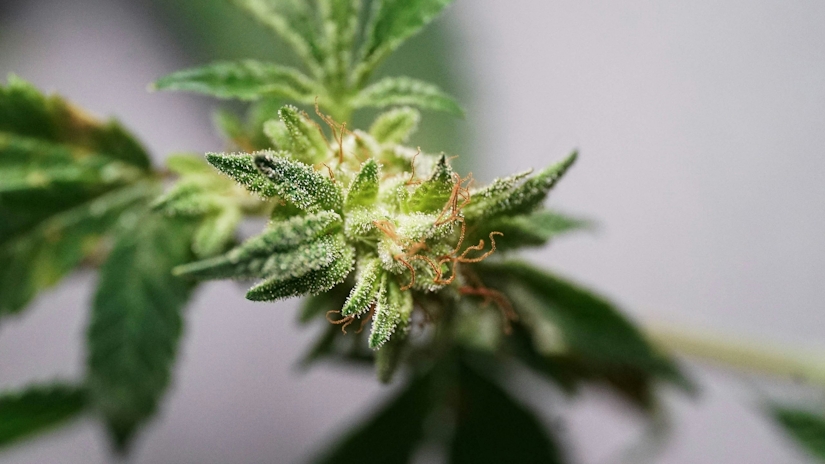
2H Media
What Is THCP Flower and Should You Actually Be Smoking It?
What is THCP flower? The supercharged bud everyone’s curious about.
THCP flower is showing up on more online menus and smoke shop product lists, especially for consumers who’ve built up a high tolerance to traditional THC. It’s often described as stronger than THC flower, but there’s still a lot we don’t know about how THCP behaves once it’s added to smokable products. Potency, production methods, and safety can vary widely depending on who is making it. Before deciding whether it’s worth trying, it helps to understand how this flower is made and what kind of experience it can actually deliver.
Key Takeaways
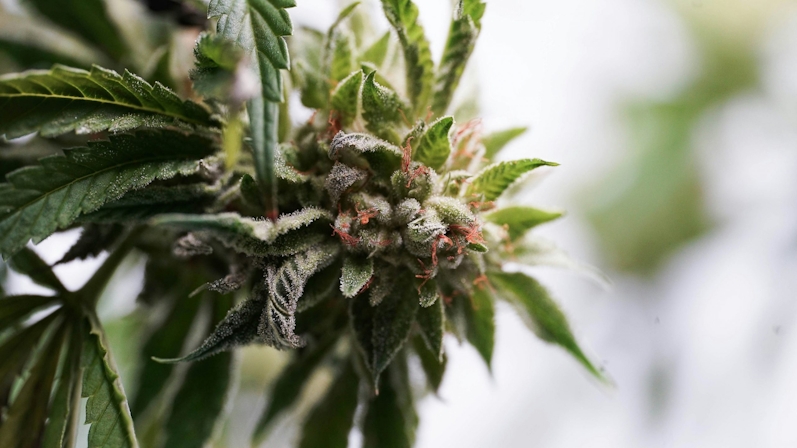
2H Media / Unsplash
- THCP (tetrahydrocannabiphorol) is a cannabinoid that binds more strongly to CB1 receptors than THC, making it significantly more potent in lab tests.
- THCP flower isn’t grown; it’s made by infusing hemp or cannabis flower with extracted or synthesized THCP.
- Infused flower varies widely in strength and consistency, especially without clear standards or regulation.
- THCP can produce a powerful, long-lasting high that may be overwhelming for casual or low-tolerance users.
- Compared to THC or THCA flower, THCP flower is generally perceived as more intense and harder to manage.
- Safety data is limited. A 2025 case report linked THCP to a fatality in a polydrug use setting.
- Some consumers enjoy smoking THCP for its potency, but product quality and labeling are inconsistent.
What Is THCP Flower and How Is It Made?
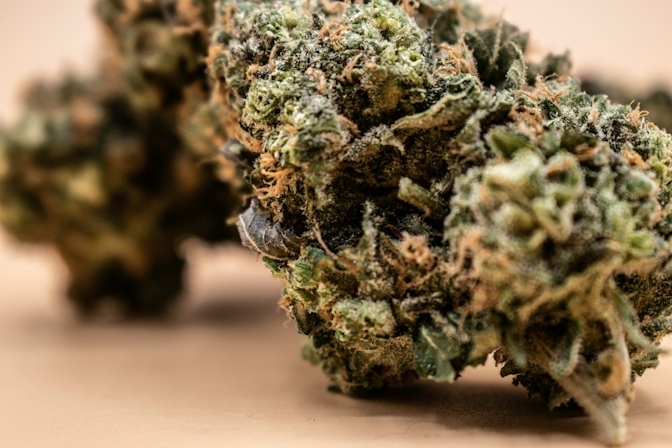
Alex Woods / Unsplash
THCP flower refers to cannabis or hemp flower that has been infused with tetrahydrocannabiphorol (THCP), a rare cannabinoid first identified in 2019. THCP isn’t naturally found in large enough amounts to be smoked in its raw form, so manufacturers apply it to flower that would otherwise contain little to none.
The process usually starts with hemp flower (to keep the product federally legal). THCP is typically synthesized from hemp-derived CBD through a chemical conversion process, then sprayed or soaked onto the flower after harvest. Sometimes it’s blended with other cannabinoids like delta-8 THC or THCA to alter the effects.
Because the infusion method isn’t standardized, THCP flower varies widely in strength. How evenly the THCP is applied and how well it sticks to the flower can make one batch feel mild and another feel like a high-dose edible.
How Does a THCP Flower High Feel?
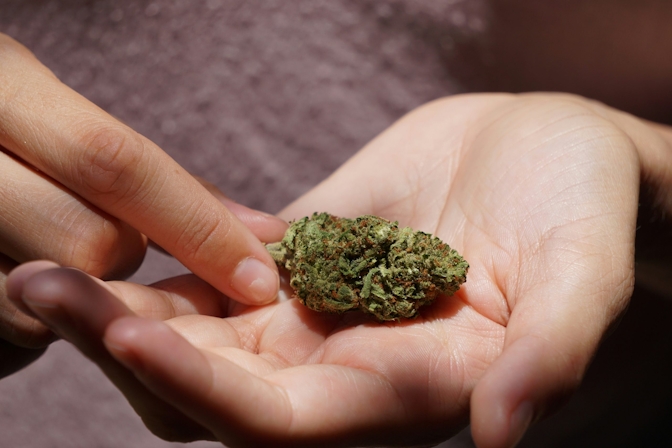
Elsa Olofsson / Unsplash
Will THCP get you high? Yes, and for many, it feels significantly stronger than traditional THC. The THCP high is often described as full-body and long-lasting, with sensations that can come on quickly and linger for hours. Some users report a heavy, almost sedative body feel; others experience euphoria, shifts in perception, or time distortion.
That intensity also comes with some risks. Because THCP binds to CB1 receptors up to 33 times more effectively than delta-9 THC, even small amounts can feel overwhelming. Some consumers report anxiety or paranoia when the dose is too high, especially if they weren’t expecting such a strong response.
Although many people enjoy its strength, THCP hasn’t been studied extensively in humans. There are no clinical trials or long-term safety studies, and its full effects, especially when inhaled, remain unclear.
Is THCP Flower Stronger Than THC or THCA Flower?
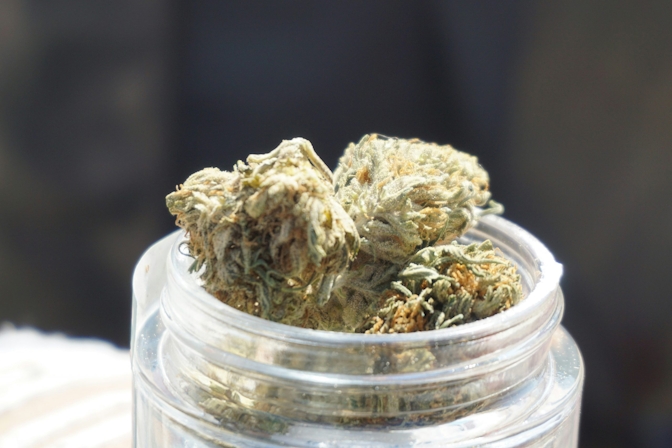
Elsa Olofsson / Unsplash
Is THCP stronger than THC or THCA? In terms of receptor binding and perceived intensity, yes. But the experience depends on how it’s delivered and who’s using it.
THCP vs. THC Flower
- THCP binds to CB1 receptors with much higher affinity than delta-9 THC.
- Many users describe the high as more intense, even at lower doses.
- The effects of THCP may last longer and feel more disorienting or full-body.
- Onset is often fast, especially with well-infused products.
THCP vs. THCA Flower
- THCA is non-intoxicating unless decarboxylated (heated).
- Once decarbed, it becomes THC and behaves like any other delta-9 product.
- THCP, by contrast, is psychoactive at much lower concentrations and hits harder from the start.
- Between the two, THCP is stronger than THCA in both potency and perceived effect, assuming the THCA is properly activated.
Perceived Strength vs. Pharmacological Potency
What is stronger than THCP? At this point, nothing naturally occurring has shown stronger CB1 receptor binding. THCP currently holds the top spot when it comes to pharmacological potency.
That said, lab potency doesn’t always match real-world intensity. A 2019 study by Citti et al. confirmed THCP’s high receptor affinity, but how that translates depends on the method of delivery, product formulation, and the user’s own tolerance and endocannabinoid tone.
So while THCP is stronger than THC on paper, how it actually feels varies person to person, and not every product will reflect that lab data.
Is THCP Flower Safe to Use?

Is THCP safe? That’s still an open question. The cannabinoid shows strong activity at CB1 receptors, but its effects haven’t been tested in controlled human studies. This lack of data makes it difficult to evaluate both short- and long-term risks.
A 2025 case report linked THCP to a fatality in a polydrug use setting. The individual had consumed alcohol and 8mg of THCP. While the presence of multiple substances complicates interpretation, the case raises questions about how THCP may interact with other depressants or psychoactive compounds.
The chemical conversion process used to make THCP from CBD can also introduce unwanted byproducts or residual solvents if the material isn’t purified properly. Since THCP products aren’t federally regulated, there’s no standard for removing those contaminants or ensuring their safety for ingestion or inhalation.
Mislabeling and inconsistent quality add more concerns. A 2024 study by Caprari et al. found that many retail THCP products were inaccurately labeled, with some containing much less THCP than claimed, or none at all. The study also highlighted the lack of standardized testing methods and regulatory oversight across the industry. Without clear product data and enforcement, it’s difficult for consumers to verify what they’re actually inhaling.
Until more is known, it’s safest to approach THCP like a high-dose edible: start very low, don’t mix it with other substances, and stick to lab-tested products with verified cannabinoid content.
Pros and Cons of THCP Flower
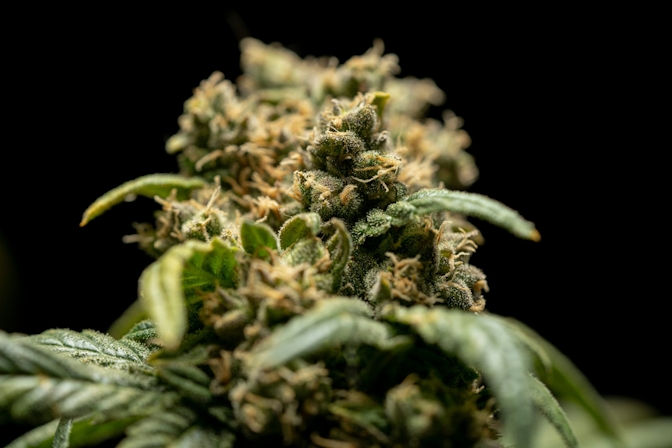
Crystalweed / Unsplash
Smoking THCP appeals to high-tolerance users because of its strength. It kicks in fast and may offer deeper effects than THC flower, especially for those who no longer get the same impact from traditional products. Some infused flower is also blended with additional cannabinoids or strain-specific terpenes, which can shape the experience or add flavor.
But potency isn’t everything. THCP products are often made with little regulation and inconsistent infusion methods, so the same brand may produce batches with very different effects. The lack of long-term safety data and the risk of overconsumption are also important to weigh, especially when there’s no standard dose.
Buyers Tips: What to Keep in Mind When Buying THCP Flower
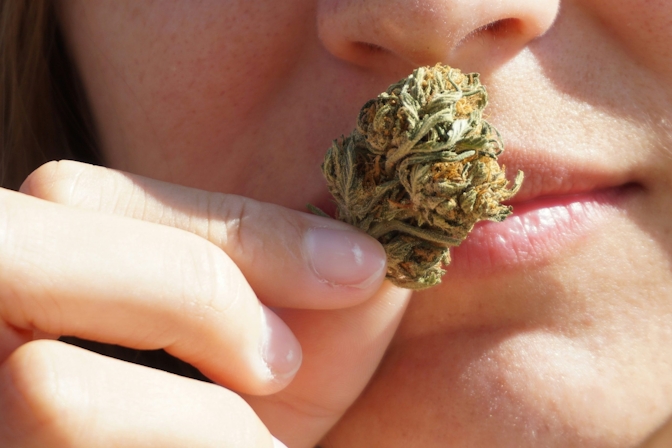
Elsa Olofsson / Unsplash
If you’re planning to try smoking THCP flower, choose carefully. Look for products that include a full third-party certificate of analysis, not just for cannabinoid content, but also for residual solvents, heavy metals, and microbial contaminants. Avoid anything without verified testing, and be especially cautious with blends containing multiple psychoactive cannabinoids. Start low, wait before taking more, and don’t assume it will feel like THC flower. For help reading test results, check out our guide to cannabis COAs.
So, Should You Be Smoking THCP Flower?

Elsa Olofsson / Unsplash
Smoking THCP isn’t for everyone. If you’re new to cannabis or sensitive to THC, this probably isn’t the best place to start. However, for experienced users seeking a more intense experience, it may offer the kind of full-body intensity that standard flower no longer provides.
Still, THCP products are unregulated, poorly studied, and often inconsistent in their effects. If you decide to try them, go slow, read the lab results, and approach it with the same caution you’d use with any high-potency cannabis product.
Want to learn more about THCP? Dive deeper with Herb’s FAQ guide.
Herb Recommended Products:
READ MORE










